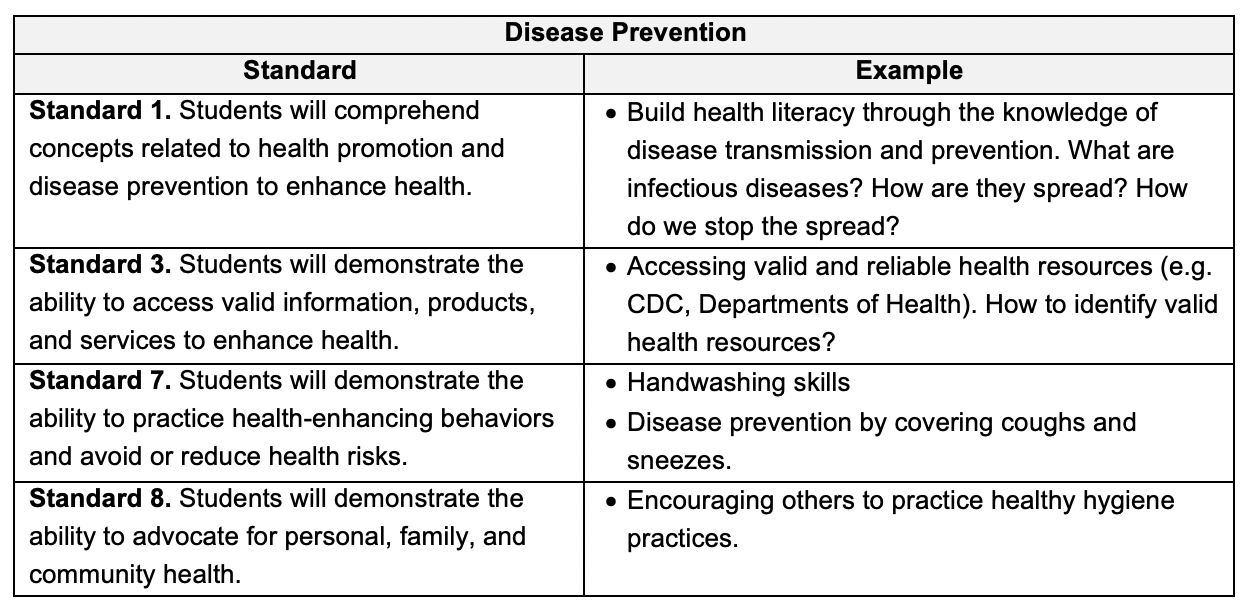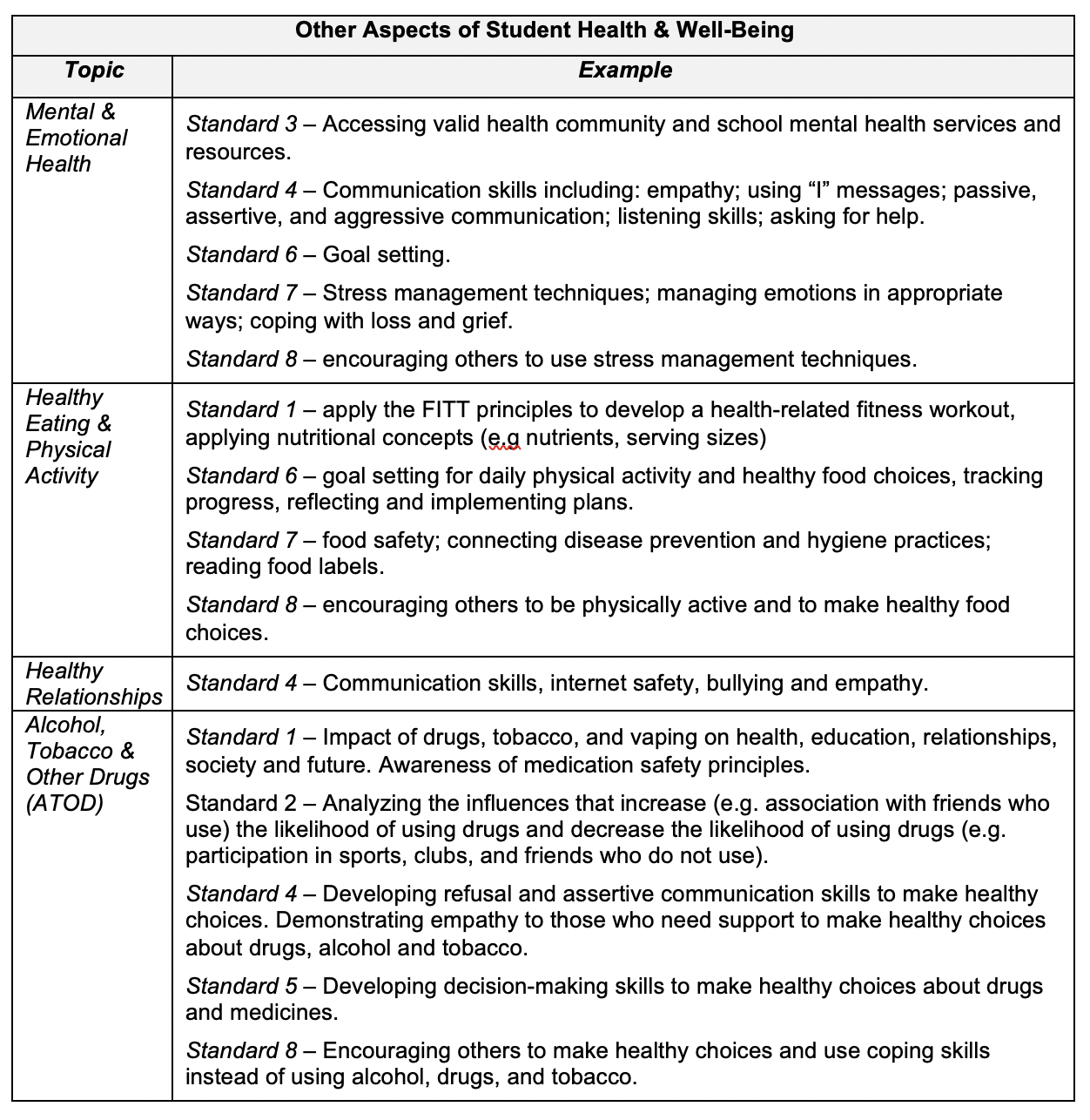Guest blog by Kevin Lorson, Wright State University & OAHPERD Advocacy Chair
The following blog post was initially developed to support OAHPERD’s advocacy efforts to become the 50th state with state health education standards. OAHPERD shared this post with Ohio’s state lawmakers so they can better understand the role of health education in the Coronavirus pandemic. Ohio’s teachers also found it useful as they developed online lessons and supports for their students.
It is hard to find silver linings in a pandemic, but this certainly makes the case for the value of quality school health education. Quality school health education is supported by standards that clarify and focus local curriculum on important student learning outcomes. If we meet these important learning outcomes we will have more young people, and eventually more adults, that have the basic skills and knowledge to reduce the spread of infectious disease and how to discern reliable health information. Unfortunately, this pandemic has demonstrated that far too many people don’t have a basic understanding of how to stop or slow the spread of infectious disease. We have needed to remediate and introduce basic personal hygiene and disease prevention skills, including proper hand washing and covering coughs and sneezes. We have also seen the need to reinforce the importance of valid and reliable sources of health information (e.g. Departments of Health, CDC, County Public Health, and daily briefings from Governors) to combat the incredible and misleading information spread quickly from all levels. We have all witnessed people who have not evaluated the health risk their choices put them and others in, particularly around social distancing. This is an unprecedented opportunity to increase the skill set that young people have to deal with both the ordinary and extraordinary health events in their lifetime.

Other Aspects of Student Health & Well-Being

Health Education teachers are also reinforcing skills and behaviors aligned with the health standards in other topics.
>
“In a world with all our medical advancements and technology, we never thought we would see the impact of a pandemic like this in our lifetime. Health education standards are critical now more than ever. As a health educator, I have taught my students how to access credible information so they can empower themselves with facts and not fear; my students have the knowledge of how pathogens are spread and how to break the chain of transmission, such as washing your hands; and just as important, I have provided the skill of practicing healthy behaviors, such as ways to enhance their mental/emotional health. My distance learning lessons include accessing credible resources, practicing healthy behaviors, and staying connected with others while practicing social distancing. Health education standards help guide lessons to empower students with the skills they need.”
>
“Living through this pandemic has made me realize how valuable it would be if the health standards had already been in place. If we could provide these tools to educators across the state, we would be giving them a place to start. We could provide them with the tools necessary to reach out to their communities. The National Health Education Standards we are hoping to adopt as a state, help educate students on skills necessary to be Health Literate individuals in our society. Health Literacy is defined as, “the degree to which individuals have the capacity to obtain, process, and understand basic health information and services needed to make appropriate health decisions.” The NHES provide a framework to help teachers in their success to develop Health Literate students. Ask any student at home right now, what skills are needed to be most successful with their off site learning. My gut tells me skills like analyzing influences, goal setting and decision making would help them drive their ships into port successfully.”

Leave a Reply